Donbas fighting: Risking capture to evacuate the vulnerable from the front line
- Published
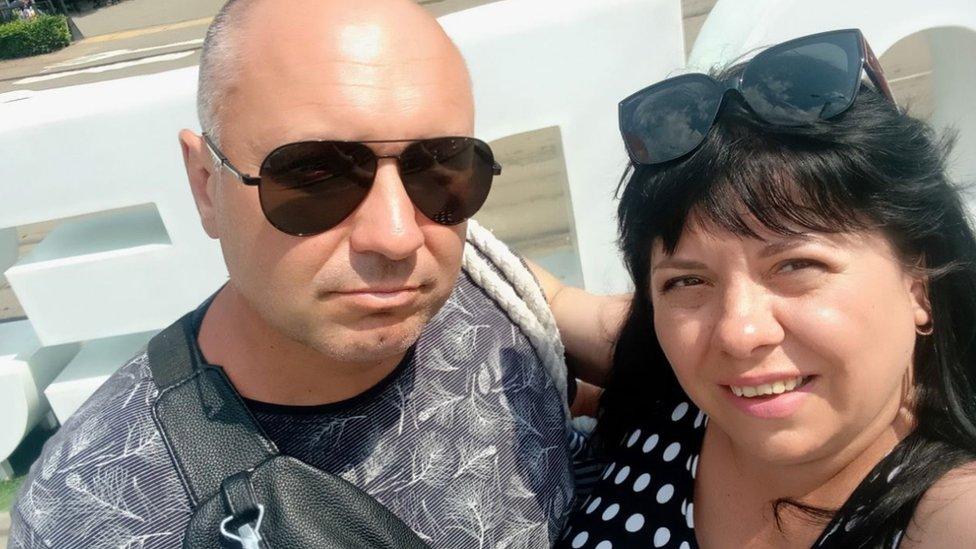
Mykhail (L) is being held by the Russians, his wife Yulia (R) says
About 2,000 civilians are reportedly trapped by fighting in the front line town of Popasna in eastern Ukraine's Donbas region, the main focus of Russia's attempt to gain territory.
Local officials say food supplies in Popasna are expected to run out within a week - but all rescue efforts have been halted after three evacuation buses entered the region - but only one returned.
Five volunteer drivers and staff are either missing or captured by Russian troops, authorities say.
"Every day the Russians advance a little further. The situation is very difficult," said Nikolai Khanatov, the head of Popasna's military-civilian administration.
Across the Donbas region, small groups of civilian volunteers in cars and buses are playing a key role in helping to evacuate those - particularly the elderly and infirm - who have struggled to leave towns and villages in the path of the Kremlin's new offensive.
"We've been going quite close to the front and evacuating blind people, people with walking frames. I'm quite scared most of the time," said Guy Osborn, a visiting British maths teacher volunteering for a small charity in the area.
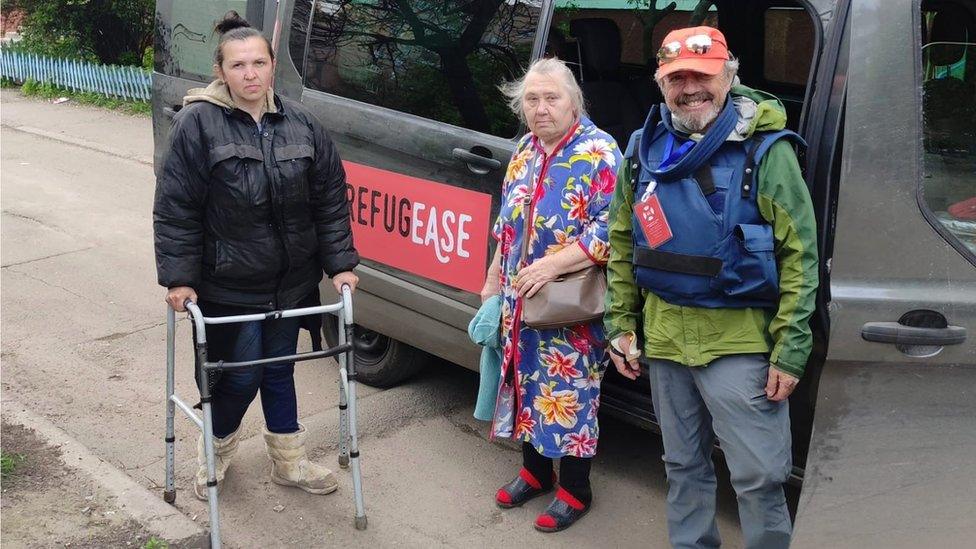
Briton Guy Osborn (R) has been helping to evacuate vulnerable people
Last Friday a local history teacher, Mykhail Pankov, set off in a school bus for Popasna, hoping to bring out a few dozen civilians who had been sheltering for weeks in cellars. The town is located between the cities of Luhansk and Donetsk, which have been held by Russia-backed separatists since 2014.
His wife Yulia Pinzelik had begged him to stop making the trips as Russian troops had slowly gained control over almost the whole town.
"He's a stubborn man. He said he wasn't afraid and that people needed help," she said.
A few hours later, another school bus returned safely to the nearby town of Bakhmut with a several elderly civilians onboard. They sat in near silence, visibly traumatised.
"It was so scary. We spent two months in our cellars," said one elderly woman, before collapsing into sobs.
But Mykhail and his bus did not return. Nor did the driver of a third bus. Reports began trickling in suggesting that at least one of the buses had come under fire.
"I'm begging you very much, bring my dad back to us. We feel terrible without him, we miss him. Please give my daddy back to me," said his 12-year-old daughter Varvara in a tearful message broadcast soon afterwards on social media.
"I feared the worst," said Yulia.
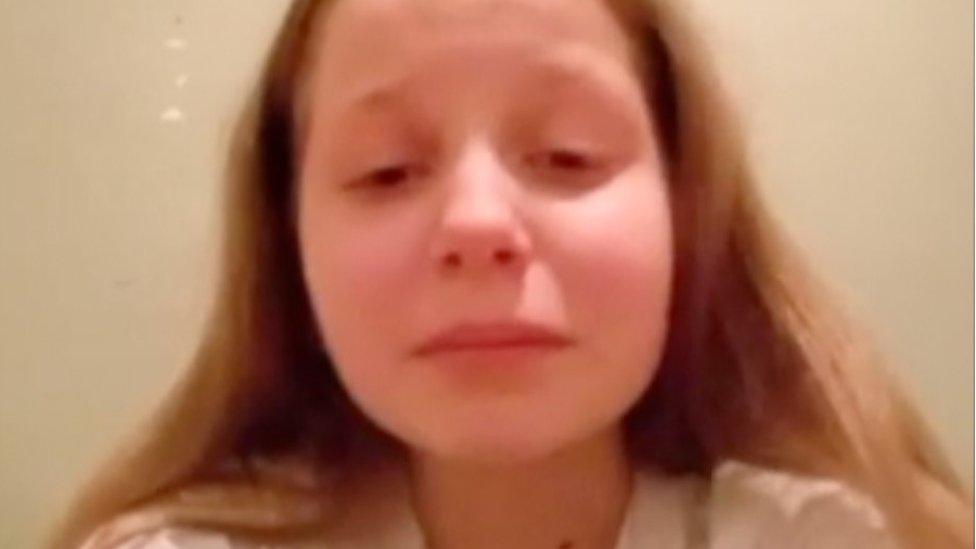
Mykhail's daughter Varvara made an emotional appeal on social media for her father's return
But then a Russian TV channel broadcast footage of Mykhail, first blindfolded, then speaking to a visiting Russian journalist. A soldier explained that he'd been found in Russian territory, that he was suspected of being a spy and that he'd been trying to pinpoint targets for Ukrainian artillery.
"That's ridiculous. He's a history teacher. A sporty guy. That's all," said Yulia. But at least the video confirmed that her husband was still alive. A few days later she received an unexpected call from Mykhail himself. He was "fine, they're feeding him well, and keeping him in a dormitory", she said. He confirmed that at least one of his colleagues was alive but wounded.
In subsequent calls, Mykhail raised the possibility that he might be swapped in a prisoner exchange.
"I don't understand much about it. But yes, the idea is to swap him [for captured Russian soldiers]. Let the authorities do that. I hope it will be soon and all will be fine," said Yulia, collecting her husband's belongings from the flat he had been using in Bakhmut.
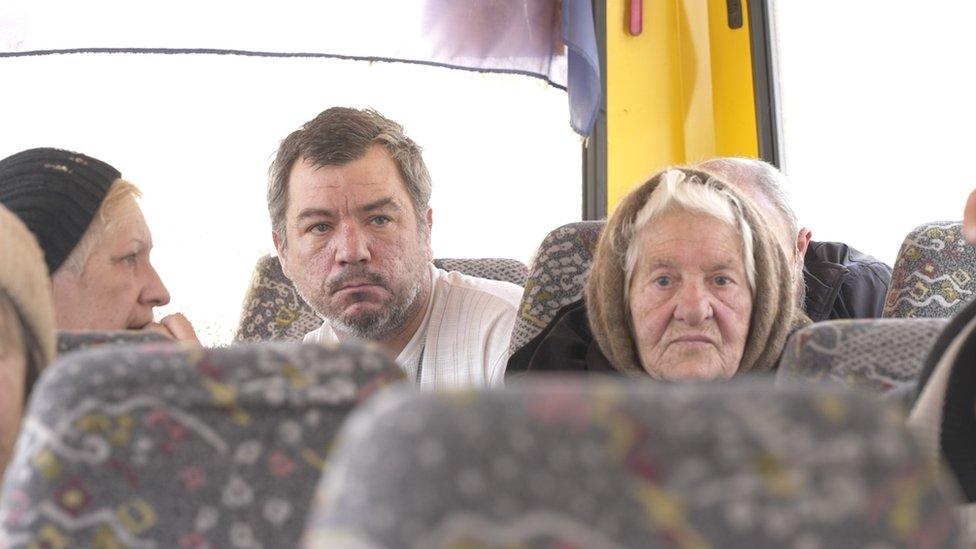
One bus did return from Popasna carrying evacuees
Ukraine's Deputy Prime Minister Iryna Vereshchuk tod the BBC last week that the Russians had been trying to exchange civilian hostages for Russian military prisoners elsewhere in Ukraine - a move forbidden by the Geneva Convention.
She said more than 1,000 Ukrainian civilians were being held prisoner in Russia - "That's why they captured all these hostages, civilians, women, employees of local councils, to try and use them," she said.
Popasna official Nikolai Khanatov said Mykhail had been involved in humanitarian activities, not espionage. The local administration was not negotiating with the "terrorist" Russians, he said, but he expressed hope that Mykhail would be returned as part of some kind of swap.
"It pains me to see this, but the positive thing is that we know he's alive," he said.
"I hope they won't kill him."
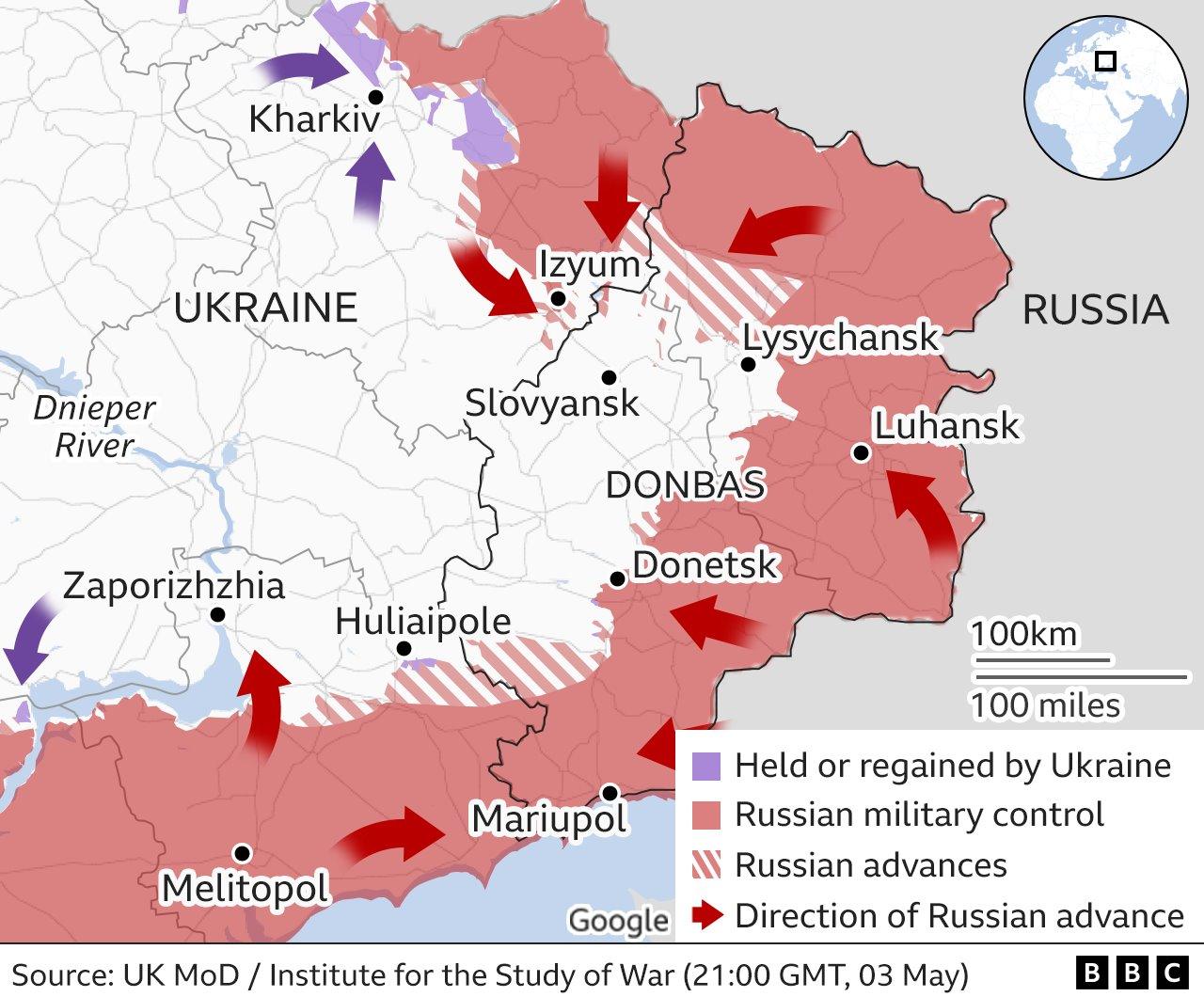

War in Ukraine: More coverage
